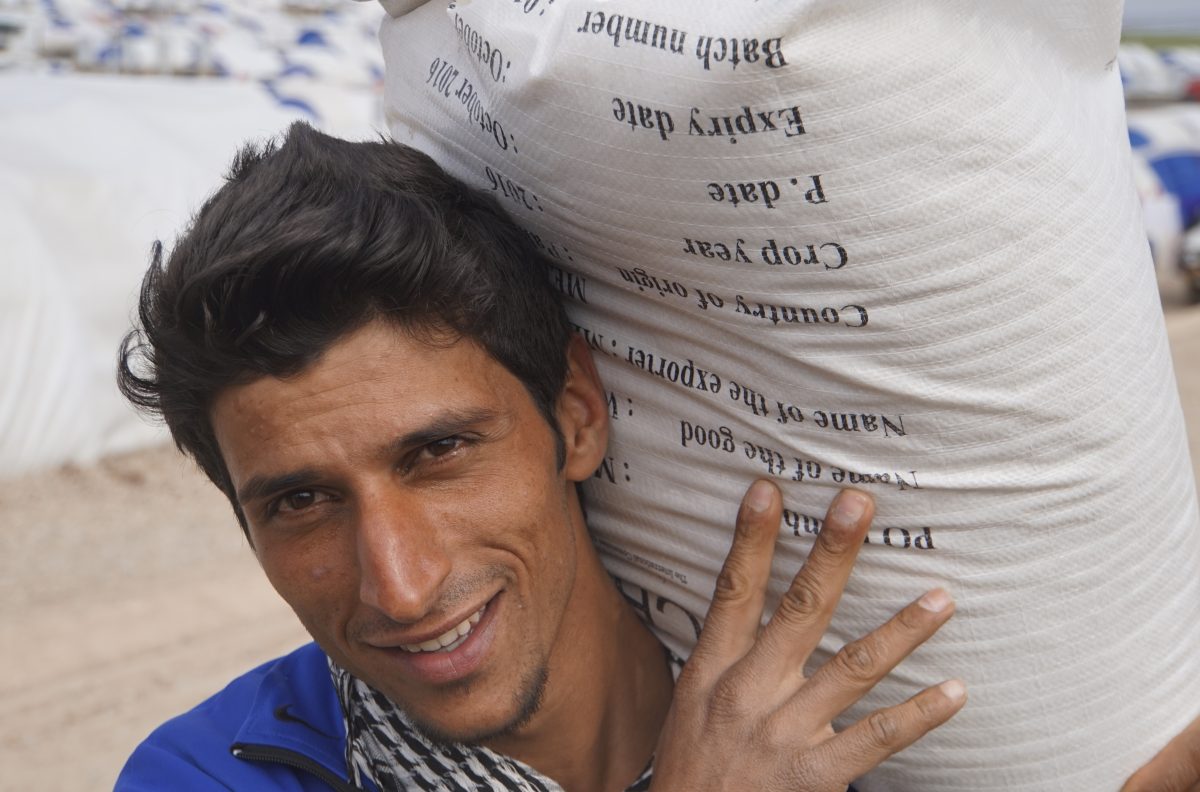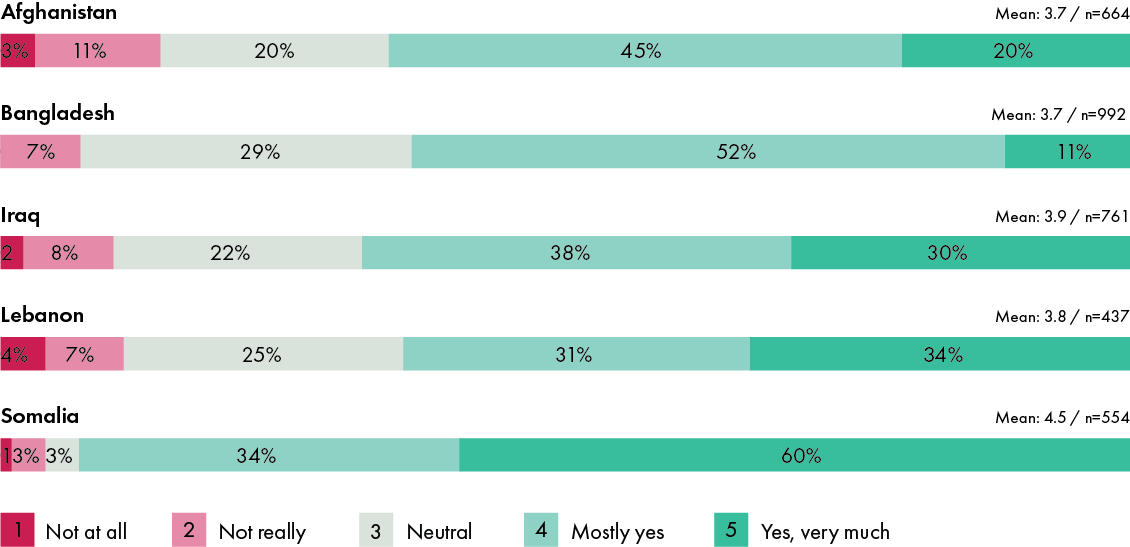Opinion
Dear aid workers around the world
Elias Sagmeister • 18 August 2018

Today, as the world celebrates World Humanitarian Day, we pay tribute to those of you who risk your lives in humanitarian service, and to publicly support all people affected by crisis around the globe. To all the brave individuals who dedicate their lives to helping others, not just on this special day, but every day, thank you.
At Ground Truth Solutions, we also mark this occasion to honour those who have been hurt or killed while serving people in crises in Afghanistan, Somalia, Syria, and many other countries we are working in. We can only begin to understand what it means to lose a colleague or loved one through targeted attacks, and we have the greatest respect for the risks aid professionals take every day. Aid must never be a target.
Our work is based on surveys of affected people in crises around the world. As such, Ground Truth Solutions’ survey reports can be a sobering read. Listening to the perceptions of people on the receiving end of the aid delivery chain highlights many flaws in the
humanitarian system. People tell us they do not really know about the kinds of services available, and that they lack accurate and timely information about the delivery of aid or the location of distributions. Other basic aspects of aid programming are little understood as well, and people say they need more information about types of aid available as well as their rights and entitlements. Despite receiving aid, sometimes for years, most of the people we speak to say their most important basic needs are unmet and that they are unlikely to be able to live without support in the future.
These challenges highlight the shortcomings of the system aid workers operate in. This World Humanitarian Day, however, provides a welcome opportunity to highlight a remarkably consistent and positive trend we are seeing in nearly all our surveys: When asked about their experience with aid workers, most people – in countries as diverse as Afghanistan, Iraq, Lebanon, Somalia, and Bangladesh - tell us they are treated with respect by aid providers. With few exceptions, aid workers are trusted to have people’s best interest at heart.
Do aid workers treat you with respect?

Aid workers deserve credit for this positive pattern. It reflects the great work so many of you do in very difficult places. As we seek to improve the global humanitarian system, it is worth thinking about how we can best empower aid workers from national and international organisations to give their best. How can we provide incentives so that they take action on the ground based on their own initiative in close collaboration with the people they aim to serve, rather than acting as mere implementers of an external plan created by a bureaucrat in a distant office? Where are the aid agencies that encourage learning by their staff to promote locally led solutions to local problems? Which aid agencies have models in place to recognise staff for making a tangible difference in people’s lives, as opposed to numbers achieved, efficiency of programming, or funding secured?
Empowering individual aid workers does not mean reducing safeguards against the abuse of power. We know too well that some people
are prone to abuse power without adequate checks and balances. At a time when standardisation, scalability, and compliance seem to guide most decisions, let’s not forget that those of you working on the ground with people affected by humanitarian crises are well placed to drive effective solutions. And let’s not overlook the centrality of the relationship between aid workers like yourselves and those you support. Because for most people affected by crisis, this front-line relationship is how they experience the humanitarian system - on World Humanitarian Day, and any other day.